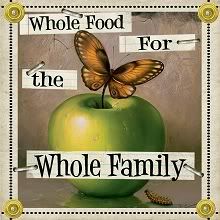April 17, 2006
http://reports.typepad.com/pandemic_plan/2006/04/why_all_the_tal.html
Here's one of the best illustrations that (1) people aren't "Thinking It Through" and/or (2) various officials and experts are saying overly reassuring things about the risk of a flu pandemic.
Based on past experience, it's widely assumed that a flu pandemic would last perhaps 18-24 months (maybe more, maybe less). Within that period, there likely would be two or more waves of illness, each lasting perhaps six to eight weeks (maybe longer), according to the U.S. Pandemic Influenza Plan.
Given that scenario, officials or experts tell us there are several conclusions and planning recommendations:
- Federal governments will be limited in how much local help they can provide. A pandemic is too widespread, affecting too many people. There's no way federal agencies can be everywhere at once. Agreed.
- Therefore, much will depend upon individuals and localities making their own preparations and being self-sufficient. Agreed.
- To reduce your exposure to the flu, you should cut back on your public outings, especially to high-traffic places - like the grocery store. (This is called "social distancing.") Agreed.
- Also, there's always a chance that production and transportation of foodstuffs could be hampered if the companies involved are experiencing high employee absenteeism. (The official U.S. government pandemic plan assumes a 30% infection rate.) Agreed.
- But even if your grocery store is fully stocked, you still want to avoid going there for a few weeks. ("To reduce your exposure to the flu,....") Agreed.
- Therefore, your household should stockpile three days' worth of food and water as part of your pandemic preparations. Huh???
Let me get this straight. In all likelihood, a pandemic would last more than a year, coming in waves lasting several weeks each. I really need to be self-sufficient, plus avoid mixing in public as much as possible. And food deliveries might even be delayed. So I should stockpile three days' worth of food and water??? Yep, that's what they say:
"Families are advised to have at least a three-day supply of food, something residents of hurricane-prone areas already do." Charlotte Observer, 4-9-06, Are we ready for possible pandemic?The Denver, Colorado water utility is putting emergency kits at water treatment plants and key pumping stations. Along with many other items, "Each plastic tub holds enough food to feed one or two people for three days."
Rocky Mountain News, 4-17-06, Denver Water readies for flu pandemic"I think every person should have a little stockpile of food and water, a little bit like the air-raid shelters in the Cold War," said Arthur Caplan, director of the Center for Bioethics at the University of Pennsylvania. "The No. 1 strategy in protecting yourself from avian flu is to minimize contact with others."
ABC News, 3-12-06, How Will Bird Flu Change Your Life
Look at that last quote again. It's at odds with itself. "The No. 1 strategy" is to "minimize contact with others." But the recommendation is to have a "little stockpile." Do we not realize that a "little stockpile" will only let you minimize contact for a little while?
Matching the supply to the need
You have to match the emergency supply to the type of need you're anticipating. That makes sense, doesn't it?
A flu pandemic is a very different kind of problem to plan for. We're not talking about a hurricane, winter storm, or moderate earthquake. Those deliver relatively localized blows, then move on. Afterward, governments and non-government organizations move in with assistance. The National Guard (U.S.) or similar military troops can help. Retailers arrange for special shipments of food, water, ice, and recovery supplies.
If you're anticipating a snowstorm, maybe an extra three-day supply of food and heating is adequate. For a hurricane/typhoon, maybe you stock enough extra food for a week or 10 days. But for a threat with the uniquely high impact of a flu pandemic, why not have enough supplies for two or three months? (The U.S. Department of Health and Human Services recommends having a two-week supply of water and food. Even that sounds inadequate to me.)
And it's not just food and water. What about medicines, infant care items, etc.? You don't have to build a fortress or live hermit-like. But to the greatest extent reasonable, consider having a self-sufficient household for three months. If a pandemic begins and supplies aren't disrupted much, great. You can save your stockpile for the pandemic's second or third wave, which may be worse than the first wave. (T-h-i-n-k I-t T-h-r-o-u-g-h.) If the pandemic is mild or doesn't happen in the next few years, no harm is done. Use the stockpile. Or, if you're "rotating stock," as advised, just keep the stockpile perpetually.
False assurance
Let me tell you something else the idea of "three-day supply" does. It suggests the effects will only be felt for three days. That is false assurance. Or it suggests that someone will begin bringing you food and water after three days. That is false assurance. It subliminally understates the potential risk and, therefore, encourages people to under-prepare. That is bad, bad, bad.
Practical application
Let's get down to brass tacks. If you're the head of a household, think about the kids. What do you do for them on the fourth day of your "three-day supply of food and water?"
Get serious about planning and preparation. Browse this blog for ideas and action items.
Pandemic planning. Think It Through.



No comments:
Post a Comment